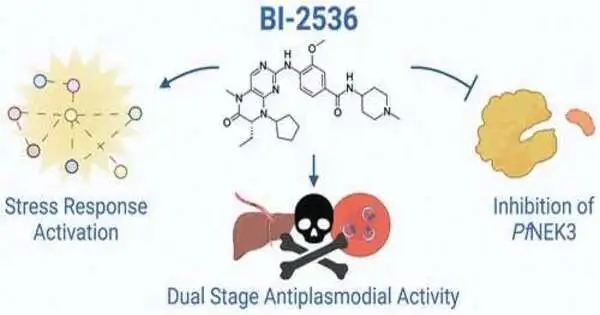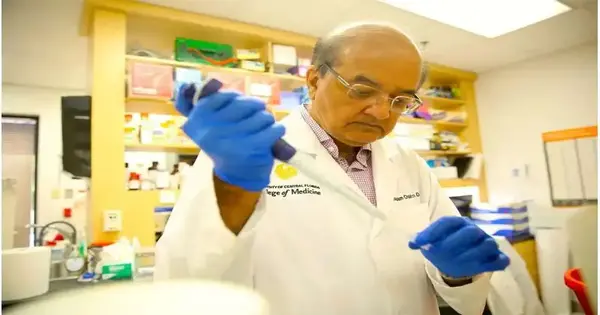A group of UCF researchers is looking to use cancer drugs to speed up the development of new malaria treatments that can save lives as the disease becomes increasingly resistant to drugs.
Debopam Chakrabarti, a molecular parasitologist at UCF, and Ratna Chakrabarti, a cancer molecular biologist, are working on a study with Nathanael Gray, a Stanford University co-leader of the cancer therapeutics research program, and Elizabeth Winzeler, a malaria drug development expert at the University of California, San Diego, to test cancer drugs for their ability to combat malaria. The ACS Infectious Diseases journal published their most recent findings.
One of the most prevalent infectious diseases worldwide, malaria is caused by parasites from the Plasmodium species and spreads through the bite of infected mosquitoes. Over 600,000 people die each year as a result of it, most of whom live in sub-Saharan Africa. Children under the age of 5 account for approximately 80% of these deaths.
“The World Health Organization reported that malaria parasites are increasingly becoming resistant to the current therapy used to treat malaria, which was discovered in the 1990s. So, new and more effective drugs for malaria are long overdue as about 30 years have gone by since we have had a new class of compounds in the market against malaria.”
Parasitologist Debopam Chakrabarti
According to Chakrabarti, “the genetic mutation of the malaria parasite makes it resistant to current drugs over time.” The current treatment for malaria, which was discovered in the 1990s, is becoming increasingly ineffective, according to the World Health Organization. Since there hasn’t been a new class of malaria drugs on the market in about 30 years, new, more effective medications are long overdue.
However, Chakrabarti explained that drug discovery can take years or even decades due to the numerous phases of testing that compounds go through for safety and efficacy.
Chakrabarti states, “Using existing drugs that have already been approved by the Food and Drug Administration is one of the ways we can accelerate the discovery of new treatment options.” This is called “taking a piggyback approach,” and it involves determining whether or not currently available medications have antimalarial properties. The typically lengthy initial stages of drug discovery will be shortened as a result of this.
The team decided to repurpose protein kinase inhibitors, which were originally developed to treat cancer, for an expedited path to malaria drug therapy in order to meet the urgent demand for new drugs. The pharmaceutical industry targets protein kinases, enzymes that control proteins in the body, frequently for cancer and other disease therapies. Protein kinases are excellent drug targets because they play a crucial role in the life cycle of the malaria parasite.

Graphical abstract. Credit: ACS Infectious Diseases (2023). DOI: 10.1021/acsinfecdis.3c00025
As part of the study, Ph.D. candidate Monica Bohmer tested a variety of anti-cancer protein kinase inhibitors under Chakrabarti’s supervision to identify inhibitors that are known to target human Polo-like kinase, a type of protein kinase that plays an important role in human cell division. She discovered that a group of inhibitors, particularly BI-2536, a well-known human Polo-like kinase 1 inhibitor, had potent antimalarial effects.
“The protein kinase inhibitors targeted another family of proteins called NEK, which also regulate cell division,” Bohmer states. “While the malaria parasite plasmodium does not have Polo-like kinases,” Additionally, they targeted additional stress-response pathways, which assisted in the parasite’s demise.
She went on to say that these NEK proteins’ roles in the parasite will be investigated in subsequent research.
“In general, this study gives significant experiences to the capability of reusing of protein kinase inhibitors for jungle fever treatment,” Chakrabarti says “while likewise highlights the requirement for additional exploration to recognize extra targets and advance the viability of these inhibitors.”
More information: Monica J. Bohmer et al, Human Polo-like Kinase Inhibitors as Antiplasmodials, ACS Infectious Diseases (2023). DOI: 10.1021/acsinfecdis.3c00025





